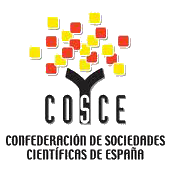Institutional Statement on the use of Research Animals
Achucarro Basque Center for Neuroscience (ACHUCARRO) joined the Agreement on Openness on Animal Research, promoted by the Federation of Scientific Societies in Spain (COSCE), with the collaboration of the European Association of Research Animals (EARA), and launched on 20 September 2016.
Animal experimentation plays a fundamental role in the discover of the underlying biological mechanisms of disease, and in the developing of medical treatments. Without research in animals, we would not have most of the medicines, antibiotics, vaccines and surgical techniques that are applied nowadays in human and veterinary medicine. For more information related with this statement, a list of scientific and medical achievements can be found at Understanding Animal Research.
An important part of the research undertaken at ACHUCARRO aims at contributing to the improvement of human health and wellbeing and is carried out thanks to the use of animals, for advancing in the knowledge of the brain, for finding therapies from brain diseases like Alzheimer, Multiple Sclerosis, Stroke, etc.
The welfare of animals used for research purposes is of paramount relevance for ACHUCARRO, and also the strict compliance and respect to the current legislation on the protection of animals used in research and for other scientific purposes, including education. Our aim is to achieve the highest standards in animal welfare, not only from the point of view of our moral responsibility on them, but also because we are convinced we could not achieve research excellence without proper animal welfare.
Our experiments with animals follow the legal standard and are assessed by an Ethics Committee on Animal Experimentation that promotes the ethical framework known as the “3Rs” – which stands for Replace, Reduce and Refine. Application of the 3Rs framework is required by law in the EU whenever animals are licensed for laboratory use.
Replace
Animals cannot be used if there is another way of doing the science. They must always be replaced with something else if it is possible to do so.
Some examples of replacement would be tissue engineering, stem cell technologies and computer modelling. Whenever these alternatives are not convenient, a simpler or less evolved species should be used. Unfortunately, it is not yet possible to abandon animal models altogether because non-animal models cannot yet replicate the full complexity of a whole living animal.
Reduce
However, whenever replacement is not an option, researchers must always use the smallest number of animals possible.
This can be achieved by using refined statistical analysis and computer modelling, re-examining the findings of studies already conducted, improving animal models and by careful experimental design.
If there are limitations to the reduction, then researcher should maximise the amount of information gained from the animals instead, what would help reducing the total number of animals used over time.
Refine
In addition to this, different measures are taken in order to improve the quality of life of experimental animals; rich environment is kept at the cages, animals are kept in groups for socialization and medicines and anesthetics are used to reduce or remove pain.
It should be noticed that refinement not only benefits animals, but also improve the quality of research findings by reducing the level of stress in animals, and therefore the variability.
ACHUCARRO also ensures that the personnel involved in animal care and researchers do have the adequate education and training and the required professional skills, and that all resources are provided to properly keep research animals in terms of facilities, husbandry, wellbeing and veterinary care.
Resources of interest
- Reporting of In vivo Experiments: The ARRIVE guidelines (Animal Research: Reporting of In Vivo Experiments) are a checklist of recommendations to improve the reporting of research involving animals – maximizing the quality and reliability of published research, and enabling others to better scrutinize, evaluate and reproduce it.
- Planning experiments and protocols for the ethical committee: PREPARE (Planning Research and Experimental Procedures on Animals: Recommendations for Excellence).
- Free Education and Training Platform for Laboratory Animal Science (ETPLAS): a very helpful site with online courses to further train in good practices at animal experimentation.
Articles, news
- TheConversation “En experimentación animal debemos ser muy transparentes” (December 11, 2023)


